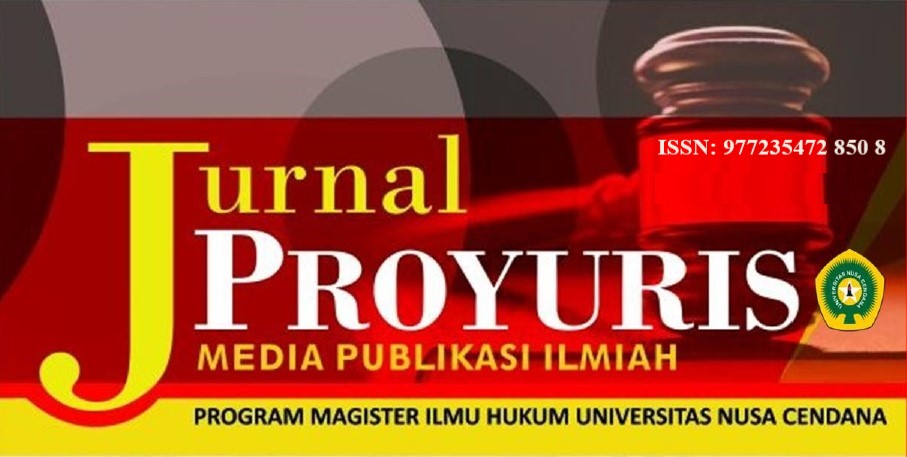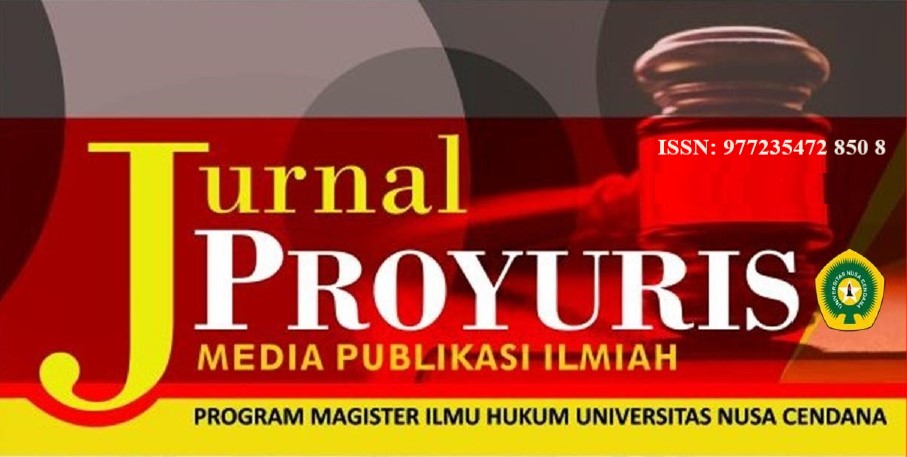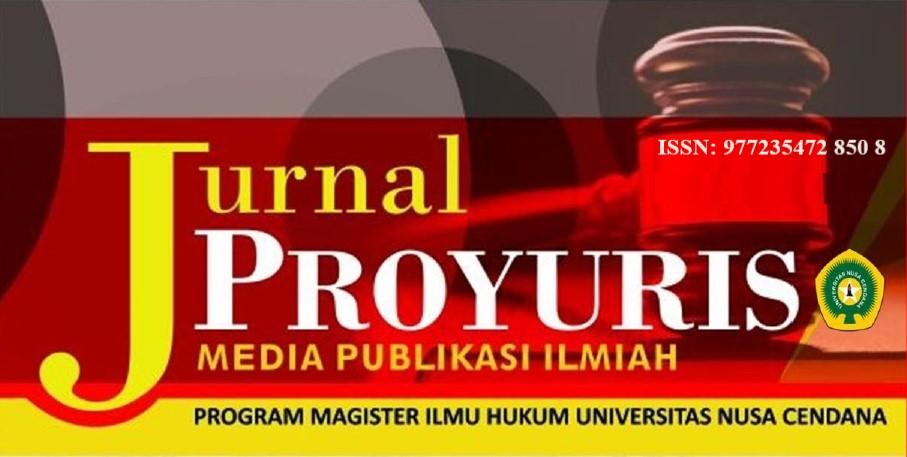Penerapan restorative justice Dalam Tindak Pidana Korupsi Sebagai Upaya Pemulihan Kerugian Keuangan Negara
Abstract
ABSTRACT: Eradication of criminal acts of corruption in various countries is based on the hope of saving state assets in various ways. The law on eradicating corruption must be designed
to facilitate the eradication of corruption comprehensively and systematically so that it can achieve this goal. This research aims to determine and analyze the application of restorative justice
in criminal acts of corruption at the inquiry and investigation stage and the limits on state financial losses where restorative justice can be applied. The methods used is empirical juridical
and normative juridical, the data source is primary data from interviews with Class 1A Kupang District Court Judges and secondary data is conducting library research on research materials. Based on the research results, restorative justice can be applied in small criminal acts of corruption (under IDR 100,000,000) at the inquiry and investigation stage if the perpetrator of corruption returns the state financial losses incurred. The implementation of restorative justice is an effort to save the state's financial losses because it has to incur huge costs to process corruption perpetrators from the investigation, investigation, trial stages, and even to prisons. In practice, several cases have implemented restorative justice by returning all state financial losses, so the case is not continued to court, this needs to be handled in legal regulations as a reference for law enforcement in Indonesia.
Keywords: Corruption, Restorative justice, State Financial Losses.

 Reynaldi Rohi(1)
Reynaldi Rohi(1)



